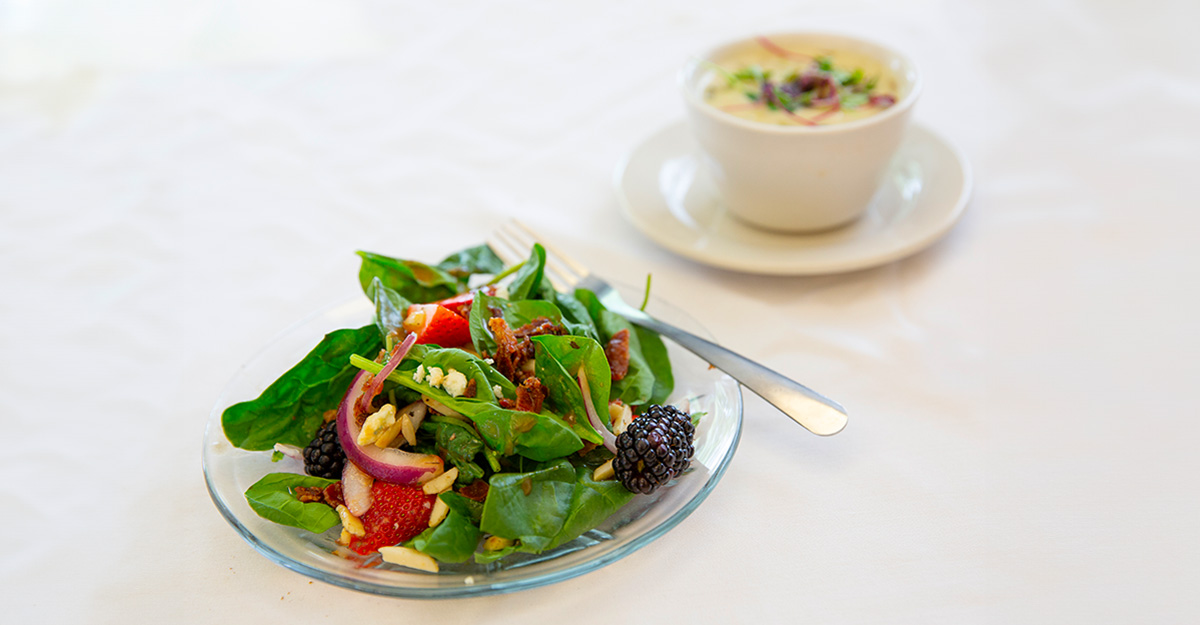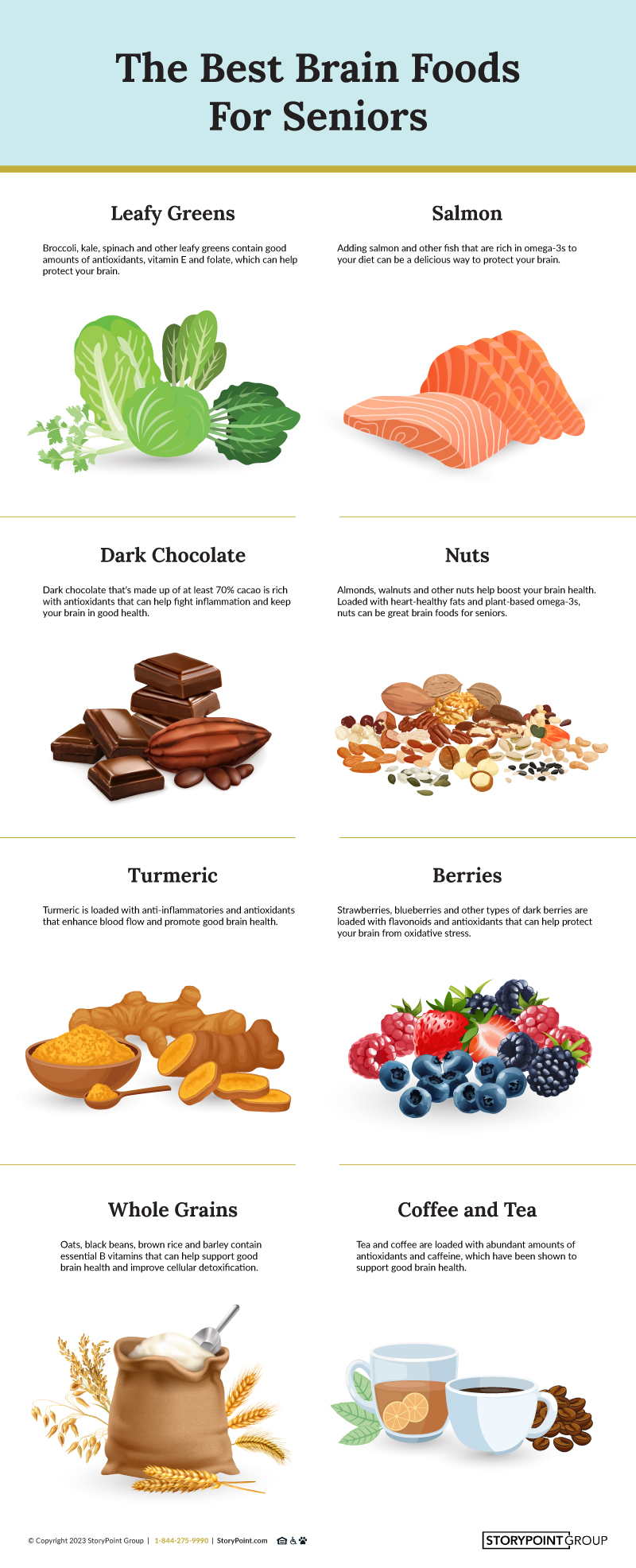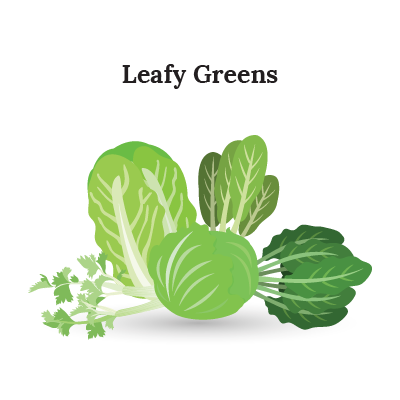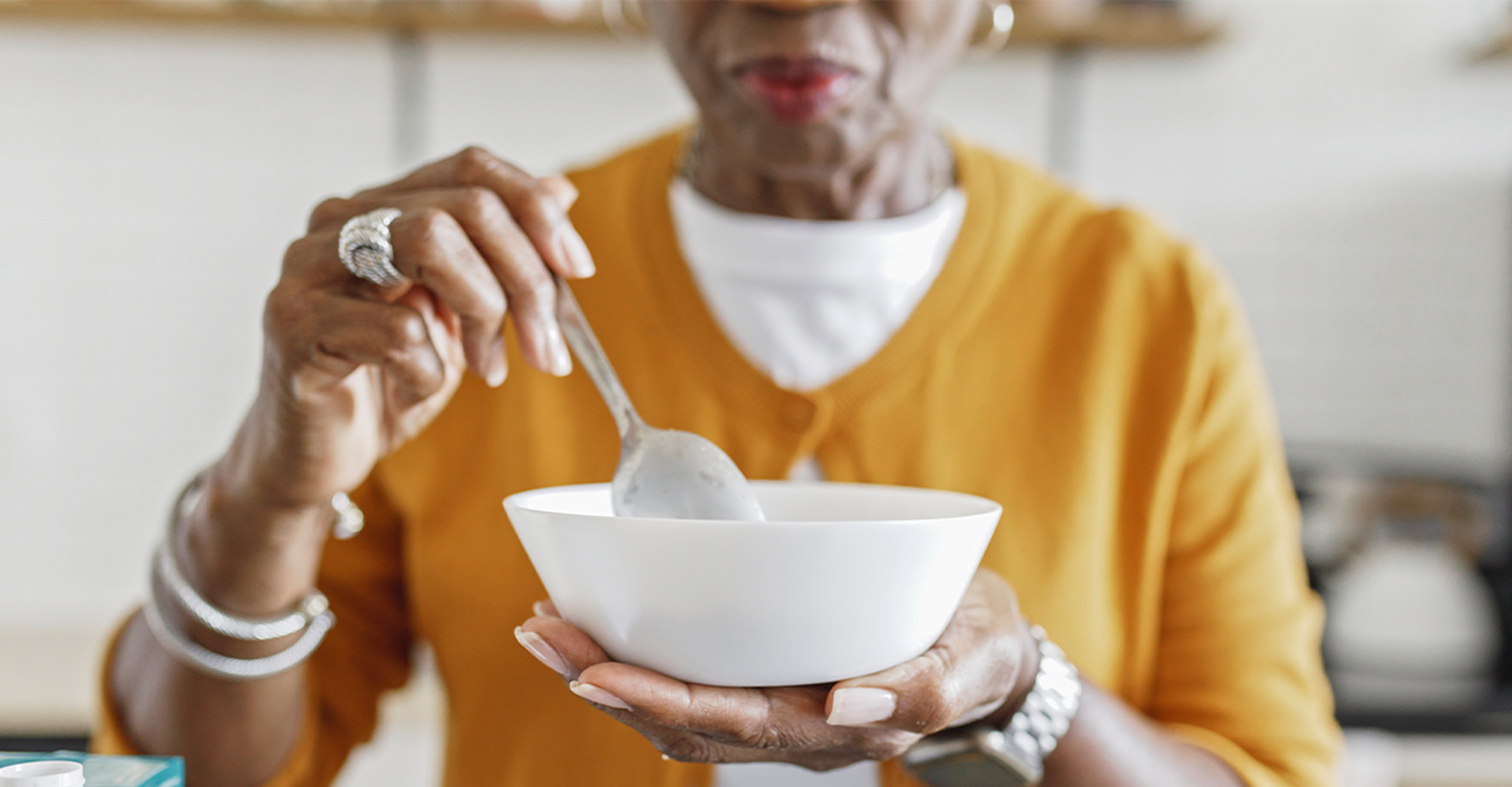Research suggests that having a healthy and nutritious diet can help keep our bodies energized, ward off chronic illnesses and promote better brain health. However, healthy eating doesn’t necessarily mean ditching your favorite snack or eating boring meals.
Instead, you can strive to add more healthy foods to your everyday diet and alternatives that are delicious and enjoyable. Read on to discover nourishing brain foods for seniors that can help keep your brain sharp and healthy.
Why Brain Health Is Important For Seniors
The brain controls all of your body’s functions, including both your physical and mental abilities. Here’s why brain health is especially important for seniors:
- Maintains cognitive function: Keeping your brain healthy can help improve or preserve cognitive abilities, like memory and problem-solving skills.
- Better quality of life: Good brain health helps you stay mentally sharp, allowing you to pursue your hobbies, interact with loved ones and more.
- Promotes independence: Maintaining a healthy brain can help prevent or delay the onset of cognitive decline caused by aging, allowing you to maintain independence for longer.
- Reduces the risk of dementia: Dementia is a common concern among seniors. Adding healthy foods to your diet can greatly help to reduce the risk of dementia and other memory illnesses.
- Enhances emotional well-being: Good brain health can help seniors regulate emotions and manage stress better. This can improve their overall sense of happiness.
Nutrients That Support Brain Health
Let’s look at some key nutrients that can help support better brain health:
B Vitamins
If you’re looking to keep your brain sharp and healthy, you may need to increase your intake of B vitamins, including B6, B12 and B9 (folic acid). B vitamins help support brain development by increasing neurotransmitter function. Some key sources of B vitamins include leafy greens, legumes like lentils, chickpeas and other beans, as well as whole grains, including quinoa and rice.
Antioxidants
Foods like spinach, tomatoes, grapes and carrots contain antioxidants, which can protect your brain from oxidative stress that can lead to cell damage.
Amino Acids And Proteins
You can think of amino acids as the major building blocks of protein, which helps make up most tissues in our body. Amino acids help in the synthesis of brain neurotransmitters, which transmit signals between brain cells.
Including amino acids and proteins in your diet can greatly increase optimal functioning of the brain and enhance cognitive performance as we age. Common sources of amino acids and proteins include lean meat, fish, eggs and whole nuts.
Omega-3 Fatty Acids
Omega-3 fatty acids are healthy fats that can help enhance communication between brain cells. A higher intake of foods rich in omega-3 has been linked to better thought processing and memory. Oily fish like sardines, salmon, tuna and mackerel are loaded with omega-3 and can be great brain foods for seniors.
Vitamin D
Found in foods like eggs, liver and salmon, vitamin D is a calcium-regulating hormone that’s important for various parts of your body, including the brain. Although it’s mostly known for helping to improve bone health, higher Vitamin D levels also help to mitigate the risk of memory diseases among seniors.
Caffeine
You might be happy to hear that a cup of coffee does more than just keep you alert throughout the morning. Caffeine, most commonly found in coffee and tea, contains neuroprotective antioxidants, which can help support healthy brain function and slow down cognitive decline.
The Best Brain Foods For Seniors
While it’s normal for the brain to lose some of its function due to the natural effects of aging, some foods are known to help keep seniors’ brains healthy and nourished, including:
Leafy Greens
Broccoli, kale, spinach and other leafy greens contain good amounts of antioxidants, vitamin E and folate, which can help protect your brain. You can enjoy leafy vegetables by pairing them with your favorite dish to add some delicious crunch.
It’s generally advisable not to overcook your vegetables, as this may result in the loss of vital nutrients.
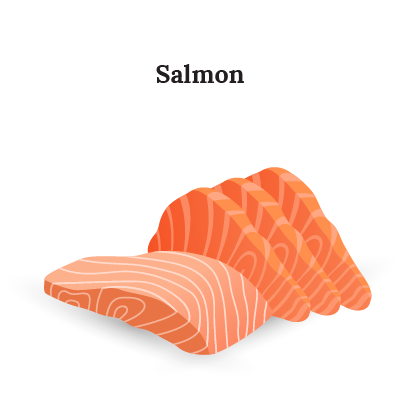
Salmon
Adding salmon and other fish that are rich in omega-3s to your diet can be a delicious way to protect your brain. Grilled or smoked salmon can pair well with some of your favorite sides, like coconut rice or pasta. If you’re not a fan of fish, you can talk to your doctor about taking omega-3 supplements as an alternative.

Dark Chocolate
Healthy dining doesn’t necessarily mean you can’t still satisfy your sweet tooth. Dark chocolate that’s made up of at least 70% cacao is rich with antioxidants that can help fight inflammation and keep your brain in good health.
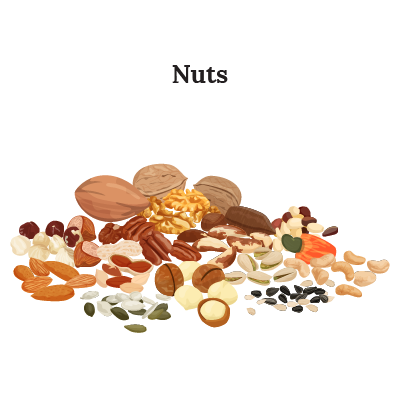
Nuts
Adding almonds, walnuts and other nuts to your diet can also help boost your brain health. Loaded with heart-healthy fats and plant-based omega-3s, nuts can be great brain foods for seniors. Nuts can be enjoyed as a snack or added to other foods like bread or oatmeal.
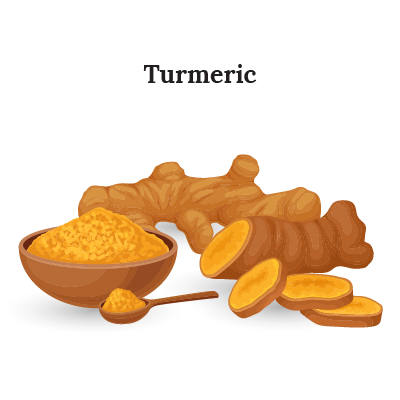
Turmeric
Turmeric also can be a great brain food for seniors. It not only adds some peppery kick and a pop of color to your favorite cuisine, but it’s loaded with anti-inflammatories and antioxidants that enhance blood flow and promote good brain health. You can try adding turmeric to your soups or stir-fry meat dishes.
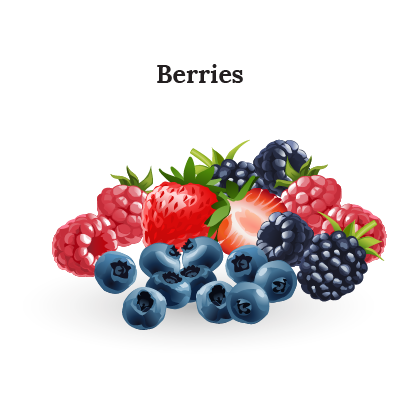
Berries
Not only are berries delicious, but they can help you maintain a healthy brain, too! Strawberries, blueberries and other types of dark berries are loaded with antioxidants that can help protect your brain from oxidative stress. Berries can be enjoyed fresh, dried or frozen — depending on your taste.
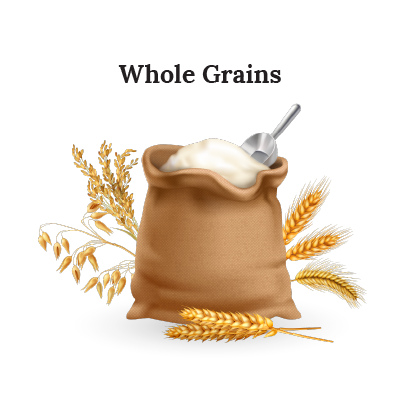
Whole Grains
Whole grains like oats, brown rice and barley make for wholesome, brain-healthy foods for seniors. They contain essential B vitamins that can help support good brain health and improve cellular detoxification. You can try serving your whole grains with roasted vegetables or a delicious stew.

Tea And Coffee
You may be pleasantly surprised to learn that some of your favorite beverages are good for the brain. Tea and coffee are loaded with abundant amounts of antioxidants and caffeine, which have been shown to support good brain health.
How To Incorporate These Foods Into Your Diet
Eating brain-healthy foods doesn’t mean you should toss out everything else in your fridge or pantry. Meal planning can help take the guesswork out of deciding on everyday meals and promote healthy eating. By planning your diet, prepping your meals ahead of time and incorporating each food group into your diet, you can continue enjoying your favorite dishes alongside nutritious brain foods for seniors. Eating the same meals every day can get boring, even when they’re healthy for you. Feel free to experiment with different food combinations and recipes to introduce some variety to your dining.
Suggested Recipe
You can try out this mouthwatering recipe that’s loaded with some of the best brain foods for seniors:
- Bake or smoke fresh salmon filet.
- Sprinkle with turmeric and dress with chopped broccoli.
- Serve with brown rice, sauteed spinach and a glass of mixed berry juice.
Other Lifestyle Factors That Promote Better Brain Health
As you know now, adding brain foods to your diet can be a great way to improve and maintain your cognitive function. Let’s look at some additional healthy practices that can help keep your brain sharp and nourished:
- Getting quality sleep: Sleep is vital for keeping your brain healthy. A good night’s sleep can allow your brain to restore and repair itself for optimal function.
- Maintaining social connectivity: Social connections make our lives more fun and enjoyable. Human interaction, such as talking to a loved one over the phone, attending your grandchild’s birthday party or volunteering for a good cause, can help improve emotional well-being and combat cognitive decline.
- Regular physical exercise: Whether you prefer walking, cycling or an afternoon swim, regular exercise can help your body fight inflammation and improve blood flow to the brain. Working out also has other great benefits for your body, such as increased strength, improved balance, and overall emotional well-being.
- Mental stimulation: Keeping your brain engaged with fun and challenging activities can greatly help to improve and preserve cognitive function. Creating arts and crafts, enjoying board games with your grandkids and solving puzzle games are some of the key ways you can keep your brain active and healthy.
How StoryPoint Supports Brain Health
At StoryPoint Group communities, our goal is to provide the best possible care to our residents and help them live happy, healthy lives. We serve nutritious, chef-prepared meals, offer a fun-filled activity calendar and more to promote healthy living — so our residents can enjoy their golden years.
Give us a call today at 1-844-403-6569 or schedule a tour to learn more about our communities. We can’t wait to get to know you!








